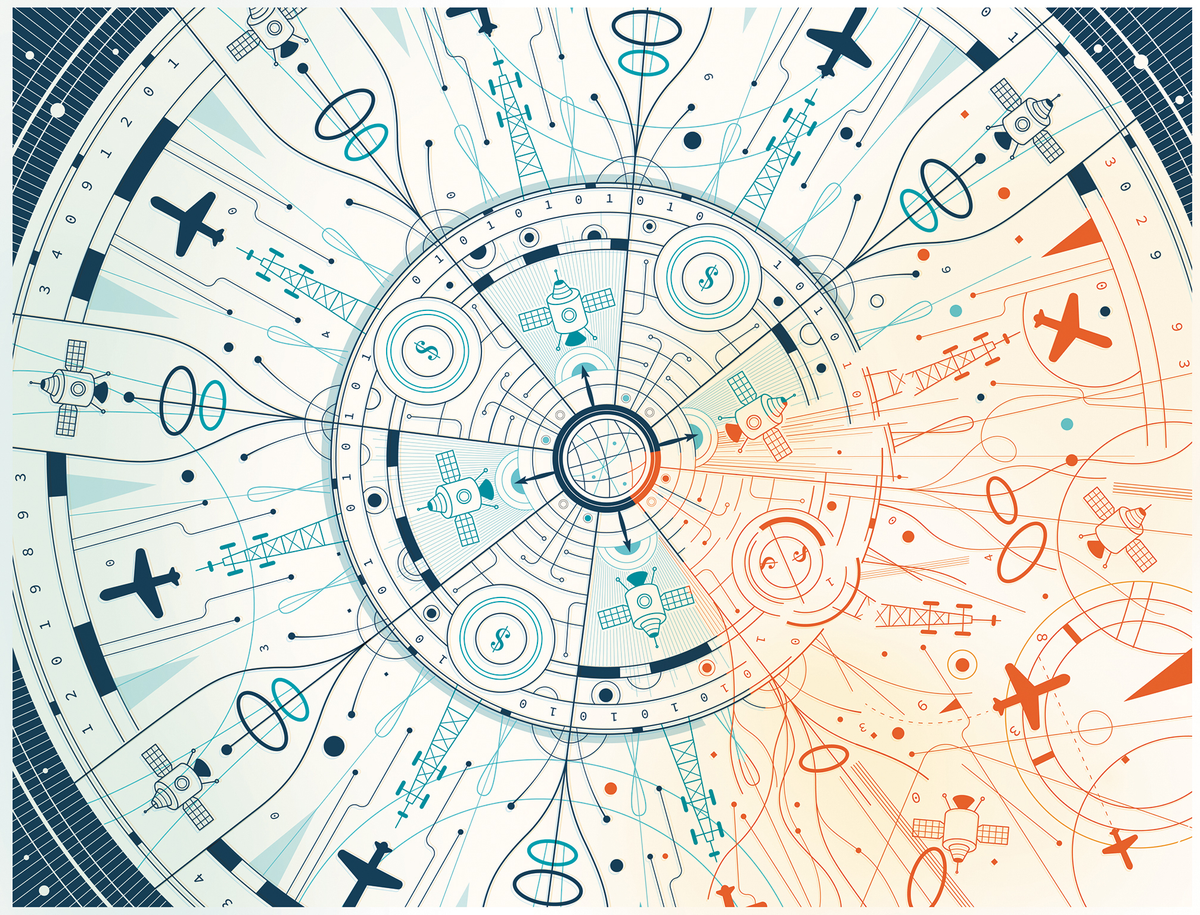invadertim
In my experence, its always my fault.
Here's me talking too much about the two pilot system we currently use for the most part in aviation. It has some issues, but its the best system we have, or are likely to ever have. Here's why...
Operational Control
For those of you who didn't have this concept hammered into your heads at an airline indoc class; Operational Control (OC) basically means who controls where and how a flight is conducted. In practice OC is a shared responsibility between the Company, in the form of a dispatcher or flight follower, and the PIC/Captain. Either party has the ability to disagree with the other, and once the aircraft is in the air the PIC has final authority, but usually some sort of agreement is made, especially in cases where the aircraft has to be re-tasked; ie a diversion.
Aircraft have to be able to be re-tasked in flight. And that has to be able to be initiated from the ground if needs be.
In addition on the flight deck the two pilots have to also work together, once again the PIC has the final say. In practice most flight are operated as a team, with both pilots agreeing to any needed corrective action in response to any required change. In addition the second pilot serves as a backup to the other in an incapacitation event. Almost all aircraft can be flown if needed by one pilot, aided if necessary by another non-pilot crew or passenger.
Aircraft have to be able to be re-tasked in flight, independent of input from the ground if needs be.
So where does this leave us?
What we have now is a two pilot system; it can and has failed on occasion, but we really don't know how many issues it's stopped. I, as well as pretty much every pilot out there has been told by the person sitting next to them at some point "Maybe we should do this instead?". I personally make sure to brief my FO's with this explicit concept in mind. I'm human, I on occasion fail. Moreover, the SIC can, and they have in a few instances, over ridden the PIC when it comes down to safety of flight.
JetBlue Flight 191 - Wikipedia
We've also seen events where one pilot or flight deck crew has acted out of seeming pure evil:
Germanwings Flight 9525 - Wikipedia
or perhaps out of suicidal urges or depression:
EgyptAir Flight 990 - Wikipedia & Federal Express Flight 705 - Wikipedia
with the intent to bring a flight down. We don't know how many events simply never happened because there was another pilot right there. Because of this, I don't think single pilot ops are feasible on a large scale.
So lets keep two pilots, but put one on the ground!
Not in theory a terrible idea, but it has a lot of issues that are IMHO currently unsolvable. Why? Operational Control. You have to be able to re-task an aircraft in flight; weather, airport closures, security events, they all on occasion make us change where an airplane goes. Also we have to be able, if needed, to take control of an aircraft from an incapacitated or unhinged pilot. To do this would require a system that has the ability to over-ride the PIC remotely. One could also of course simply operate the aircraft remotely completely, leaving just flight attendants as the crew. The technical ability to do such a thing exists; though in speaking with folks who have operated such systems in the military they seem not quite ready for prime time, yet.
Drones, drones everywhere....
My personal feeling is that the security hole required for any sort of remote operation is simply too big. Consider this event;
Iran–U.S. RQ-170 incident - Wikipedia
In this event Iran claims to have forced down one of our bat-plane drones by taking control of it. I have my doubts about that, but it is plausible. In any event if there was a system by which commercial aircraft could be remotely controlled, this would instantaneously become hacking/terrorist target #1 world wide. The recent pipeline shutdown would look penny ante by comparison. Imagine 20 or so heavy's holding on the ocean tracks waiting on a big ransom payment. Or maybe you put an iA330 over Central Park at 1000' and just shut down its engines.
There is no networked data system that is invulnerable to attack at some point; and if it can be attacked, it will be. Further, if a system was developed to allow single or no pilot control everyone would want access to it. I have serious doubts about first world corporate IT security, much less that of smaller and less well resourced national carriers. Hackers/terrorists can try all they want, they only need to succeed once. Defenders have to succeed every time. It won't happen.
So the ALPA posters?
Some nerd somewhere thinks all of the tech issues can be solved. Some MBA somewhere wants to eliminate paying pilots much, or anything. Some engineer thinks the flight systems can be made to work flawlessly. Someday they'll all be in a room together, ready to take over the world. And they'll want to try, broken eggs be damned. Might be the only thing stopping them is the law and public opinion. The posters are an attempt to do just that. Speaking as an egg, I'm OK with my ALPA dollars being spent in this manner.
Operational Control
For those of you who didn't have this concept hammered into your heads at an airline indoc class; Operational Control (OC) basically means who controls where and how a flight is conducted. In practice OC is a shared responsibility between the Company, in the form of a dispatcher or flight follower, and the PIC/Captain. Either party has the ability to disagree with the other, and once the aircraft is in the air the PIC has final authority, but usually some sort of agreement is made, especially in cases where the aircraft has to be re-tasked; ie a diversion.
Aircraft have to be able to be re-tasked in flight. And that has to be able to be initiated from the ground if needs be.
In addition on the flight deck the two pilots have to also work together, once again the PIC has the final say. In practice most flight are operated as a team, with both pilots agreeing to any needed corrective action in response to any required change. In addition the second pilot serves as a backup to the other in an incapacitation event. Almost all aircraft can be flown if needed by one pilot, aided if necessary by another non-pilot crew or passenger.
Aircraft have to be able to be re-tasked in flight, independent of input from the ground if needs be.
So where does this leave us?
What we have now is a two pilot system; it can and has failed on occasion, but we really don't know how many issues it's stopped. I, as well as pretty much every pilot out there has been told by the person sitting next to them at some point "Maybe we should do this instead?". I personally make sure to brief my FO's with this explicit concept in mind. I'm human, I on occasion fail. Moreover, the SIC can, and they have in a few instances, over ridden the PIC when it comes down to safety of flight.
JetBlue Flight 191 - Wikipedia
We've also seen events where one pilot or flight deck crew has acted out of seeming pure evil:
Germanwings Flight 9525 - Wikipedia
or perhaps out of suicidal urges or depression:
EgyptAir Flight 990 - Wikipedia & Federal Express Flight 705 - Wikipedia
with the intent to bring a flight down. We don't know how many events simply never happened because there was another pilot right there. Because of this, I don't think single pilot ops are feasible on a large scale.
So lets keep two pilots, but put one on the ground!
Not in theory a terrible idea, but it has a lot of issues that are IMHO currently unsolvable. Why? Operational Control. You have to be able to re-task an aircraft in flight; weather, airport closures, security events, they all on occasion make us change where an airplane goes. Also we have to be able, if needed, to take control of an aircraft from an incapacitated or unhinged pilot. To do this would require a system that has the ability to over-ride the PIC remotely. One could also of course simply operate the aircraft remotely completely, leaving just flight attendants as the crew. The technical ability to do such a thing exists; though in speaking with folks who have operated such systems in the military they seem not quite ready for prime time, yet.
Drones, drones everywhere....
My personal feeling is that the security hole required for any sort of remote operation is simply too big. Consider this event;
Iran–U.S. RQ-170 incident - Wikipedia
In this event Iran claims to have forced down one of our bat-plane drones by taking control of it. I have my doubts about that, but it is plausible. In any event if there was a system by which commercial aircraft could be remotely controlled, this would instantaneously become hacking/terrorist target #1 world wide. The recent pipeline shutdown would look penny ante by comparison. Imagine 20 or so heavy's holding on the ocean tracks waiting on a big ransom payment. Or maybe you put an iA330 over Central Park at 1000' and just shut down its engines.
There is no networked data system that is invulnerable to attack at some point; and if it can be attacked, it will be. Further, if a system was developed to allow single or no pilot control everyone would want access to it. I have serious doubts about first world corporate IT security, much less that of smaller and less well resourced national carriers. Hackers/terrorists can try all they want, they only need to succeed once. Defenders have to succeed every time. It won't happen.
So the ALPA posters?
Some nerd somewhere thinks all of the tech issues can be solved. Some MBA somewhere wants to eliminate paying pilots much, or anything. Some engineer thinks the flight systems can be made to work flawlessly. Someday they'll all be in a room together, ready to take over the world. And they'll want to try, broken eggs be damned. Might be the only thing stopping them is the law and public opinion. The posters are an attempt to do just that. Speaking as an egg, I'm OK with my ALPA dollars being spent in this manner.


